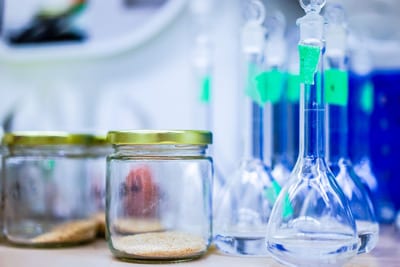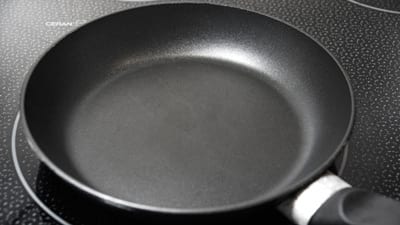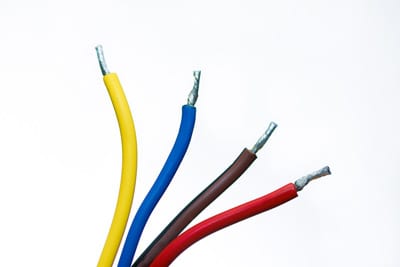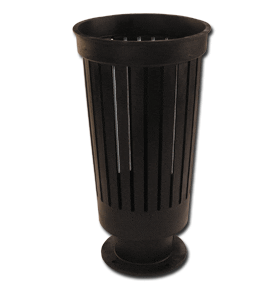The Properties of Plastic
March 19, 2018What’s the Difference Between Polymers and Plastics?
May 16, 2018 The unique properties and benefits of acid-resistant plastics make them well-suited for use in a number of industries. Chemical and corrosion resistance over wide temperature ranges and other extreme environmental conditions make the demand for these resins high. The following three are the leading acid resistant plastics on the market today: Teflon™ PTFE, Kynar® PVDF, and Telene® pDCPD. Comparatively, each is noted for their chemical and corrosion resistance and other properties that make these plastics ideal for countless applications.
The unique properties and benefits of acid-resistant plastics make them well-suited for use in a number of industries. Chemical and corrosion resistance over wide temperature ranges and other extreme environmental conditions make the demand for these resins high. The following three are the leading acid resistant plastics on the market today: Teflon™ PTFE, Kynar® PVDF, and Telene® pDCPD. Comparatively, each is noted for their chemical and corrosion resistance and other properties that make these plastics ideal for countless applications.
Teflon (PTFE)
Dupont’s Teflon PTFE (polytetrafluoroethylene) plastic is a very familiar trade name and is one of the most well-know plastics used today. You’ll find it in households and businesses everywhere in one form or another. Though it has many properties, most notably it’s known for its low coefficient of friction—virtually nothing sticks to it—and is widely used as a non-stick coating for pans and other cookware.
 As a synthetic fluoropolymer, PTFE is very non-reactive and has proven to be an exceptionally useful material. Its unique chemical inertness makes it acid-resistant and it is often used in containers and pipework for reactive and corrosive chemicals. Teflon also has very good dielectric properties and a high melting temperature. Its low friction makes it ideal for use in applications where sliding action parts are needed, such as bearings and gears.
As a synthetic fluoropolymer, PTFE is very non-reactive and has proven to be an exceptionally useful material. Its unique chemical inertness makes it acid-resistant and it is often used in containers and pipework for reactive and corrosive chemicals. Teflon also has very good dielectric properties and a high melting temperature. Its low friction makes it ideal for use in applications where sliding action parts are needed, such as bearings and gears.
Though Teflon is dense, which makes it impact resistant, it has excellent thermal properties and can retain its useful properties from freezing cryogenic temperatures all the way up to 288° C (550° F). Nevertheless, it is not ideal for structural applications because of its low resistance to wear, tensile strength, and creep resistance. These properties are often enhanced by adding fillers like glass or graphite.
Teflon Properties
- Acid Resistant
- Chemically inert
- Excellent electrical insulation
- Temperature resistant
- Low coefficient of friction
- Non-adhesive
Popular Teflon Applications
- Containers and pipework for reactive/corrosive chemicals
- Coatings on bearings, gears, and other components
- Non-stick coating on cookware
- Electrical switches, connectors, and capacitors
Kynar (PVDF)
Another fluoropolymer known for its high acid-resistance is PVDF (polyvinylidene fluoride), which is generally referred to by its trade name, Kynar. As one of the most stable and pure of all commercial resins, it is used throughout the power, renewable energies, pulp and paper, electronic manufacturing, and chemical processing sectors. PVDF resins are resistance to temperature, harsh chemicals, and even nuclear radiation.
 Kynar is a high purity engineering thermoplastic chemically resistant to strong acids, halogenated solvents, petrochemical mixtures, and reducing agents. Due to its excellent chemical-resistance, abrasion-resistance, flame-resistance, weatherability and resistance to UV degradation, you’ll find it widely used for chemical tank liners, piping, tubing, vessel fabrication, molded valves and fittings, tower packing, nozzles, and other items for corrosive fluid handling.
Kynar is a high purity engineering thermoplastic chemically resistant to strong acids, halogenated solvents, petrochemical mixtures, and reducing agents. Due to its excellent chemical-resistance, abrasion-resistance, flame-resistance, weatherability and resistance to UV degradation, you’ll find it widely used for chemical tank liners, piping, tubing, vessel fabrication, molded valves and fittings, tower packing, nozzles, and other items for corrosive fluid handling.
Because of PVDF’s resistance to hot acids of a wide range of concentrations, it is also used in the mining and plating and metal preparation industries. Being naturally flame retardant with high flexural strength makes it ideal for jacketing of fiber optic cables, fiber optic raceways and copper cable. Its UV stability and chemical resistance make it well suited for the automotive and architectural markets, too. PVDF is also used in the pharmaceutical, food and beverage, and semiconductor industries for its high purity and availability in a multitude of forms.
Kynar Properties
- Acid resistant
- Temperature/flame resistant
- Corrosion resistant
- Nuclear radiation resistant
- Abrasion resistant
- UV resistant
Popular Kynar Applications
- Liners for corrosive fluid handling
- Mining, plating, and metal preparation equipment
- Jackets for fiber optic cables, raceways, & copper cable
- Automotive components
- Pharmaceutical equipment
Telene (pDCPD)
One of the most highly acid-resistant thermosetting resins is Telene pDCPD (polydicyclopentadiene). It may not be a household name, but this remarkably engineered thermoset is widely used in commercial and industrial applications globally. Such OEMs like Osborne Industries, John Deere, Volvo, Caterpillar, Bobcat, Komatsu, Claas, AGCO, and Rostselmash, and many more, have all enjoyed the wide range of benefits that Telene offers manufacturers.
Telene is an innovative polymer compound. It is waterproof and highly resistant to acid, alkali, and abrasive substances. Because of these anti-corrosive properties, it is utilized in light towers and cell tower tops, water clarification applications, sewage plants, pipeline valves and fittings, and industrial filters.
 What makes Telene stand out is it offers the molding flexibility of a thermoset, but demonstrates characteristics similar to expensively engineered thermoplastics. It’s a lightweight material which not only reduces installation time, but shipping costs. Another benefit of Telene is part consolidation. It is processed using Reaction Injection Molding (RIM) equipment. Low-pressure molds utilizing the RIM process can form medium-sized to large-sized parts that require high level properties. This process eliminates multiple sections and welded joints, but also keeps tooling costs low and cycle times short. You’ll find these Telene resin systems widely used in body panels for cars, trucks, buses, and all types of off-highway equipment ranging from tractors to other agricultural and earth moving equipment.
What makes Telene stand out is it offers the molding flexibility of a thermoset, but demonstrates characteristics similar to expensively engineered thermoplastics. It’s a lightweight material which not only reduces installation time, but shipping costs. Another benefit of Telene is part consolidation. It is processed using Reaction Injection Molding (RIM) equipment. Low-pressure molds utilizing the RIM process can form medium-sized to large-sized parts that require high level properties. This process eliminates multiple sections and welded joints, but also keeps tooling costs low and cycle times short. You’ll find these Telene resin systems widely used in body panels for cars, trucks, buses, and all types of off-highway equipment ranging from tractors to other agricultural and earth moving equipment.
Once molded, pDCPD has many beneficial properties, including high tensile strength, impact-resistance, and high heat distortion temperature. Flexibility, flame resistance, and increased rigidity are a number of mechanical properties that can be introduced through the addition of a number of additives to create highly specialized resin formulations. Finally, Telene is an environmentally sensible choice for many manufacturers. As a raw material with a low energy balance, it is easily disposed of without creating heavy metals, ashes or dangerous gases.
Telene Properties
- Acid resistant
- Alkali resistant
- Abrasion resistant
- Corrosion resistant
- Lightweight
- Impact resistant (see other impact resistant plastics)
- Superior temperature/flame resistance
- Environmentally-friendly
Popular Telene Applications
- Body panels and components on cars, trucks, buses, tractors, and other construction/agricultural vehicles
- Construction/agricultural equipment
- Cell tower tops
- Water clarification screens
- Sewage plant plumbing
- Corrosion-resistant fittings
- Pipeline valves
- Industrial filters
Looking for more information on acid-resistant plastics for your intended application? Contact the experts at Osborne Industries today!



